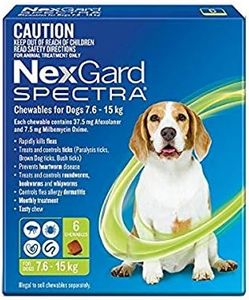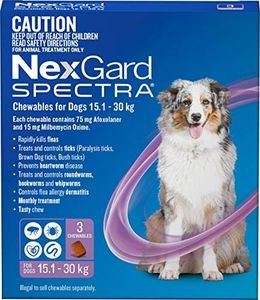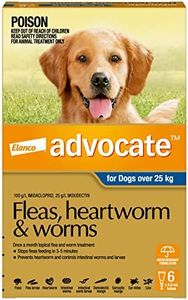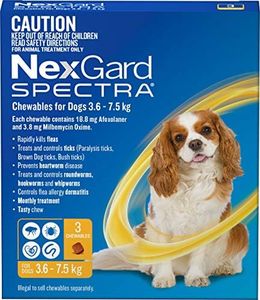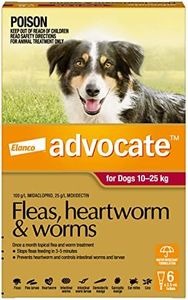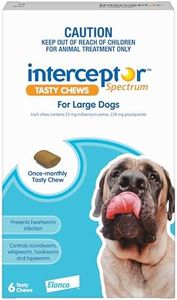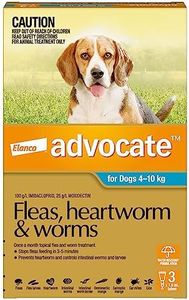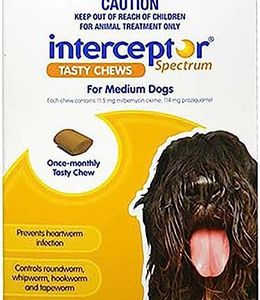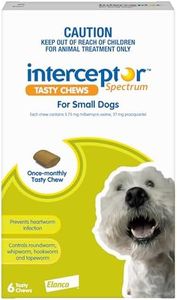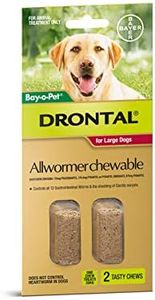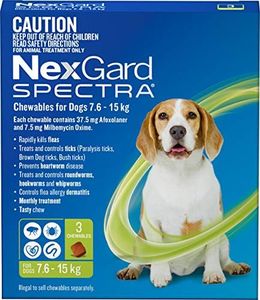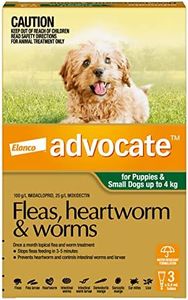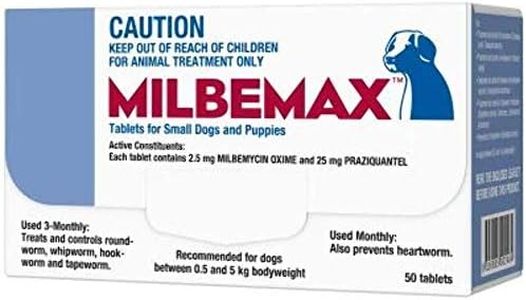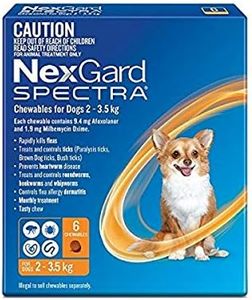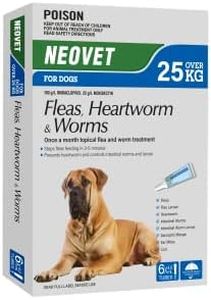We Use CookiesWe use cookies to enhance the security, performance,
functionality and for analytical and promotional activities. By continuing to browse this site you
are agreeing to our privacy policy
10 Best Over The Counter Dewormers For Dogs
From leading brands and best sellers available on the web.By clicking on a link to a third party's website, log data is shared with that third party.
Buying Guide for the Best Over The Counter Dewormers For Dogs
Choosing an over-the-counter dewormer for your dog can seem confusing, but taking a thoughtful approach can help you make a safe and effective choice. Start by understanding your dog’s needs, paying attention to their size, age, general health, and any symptoms they might be showing. It’s a good idea to recognize that not all worms are the same, and different products target different types of parasites. Always read labels carefully, and when in doubt, consult your veterinarian for tailored advice. By focusing on a few key product features, you can pick a dewormer that is safe and works well for your pet.Active IngredientThe active ingredient is the chemical that actually kills or removes the worms. Different ingredients target different types of parasites, such as roundworms, hookworms, tapeworms, or whipworms. Common ingredients include pyrantel pamoate, praziquantel, and fenbendazole. It’s important to match the active ingredient to the type of worm your dog may have, which can often be guessed based on their symptoms or vet recommendations. If you’re not sure which worms are present, products with a broad spectrum of activity can be helpful.
Worm Types TreatedThis spec tells you which specific parasites the dewormer will handle. Some products work only on one or two types, while others are labeled as broad-spectrum, treating multiple worm species. If you know what kind(s) of worm your dog has from a vet diagnosis, pick a product that specifically targets those worms. If you're treating as a preventative or aren’t sure, a multi-worm or broad-spectrum option gives wider coverage.
Dog Size and Weight RangeDewormer dosages are determined by the weight of your dog, with products labeled for certain weight categories. Giving too little may not work, and too much can be risky. Products often come in several versions for small, medium, and large dogs. Always check the dosing instructions and pick the right one for your dog’s current weight—not just their age or breed.
Formulation (Tablet, Liquid, Chewable, etc.)This spec refers to the physical form of the dewormer—such as tablets, liquids, chewable treats, or powders. Some dogs accept chewables like treats, while others might be easier to medicate with a liquid that can be mixed into food. Consider your dog's preferences and how easy (or difficult) they are to medicate when choosing the formulation.
Age AppropriatenessOver-the-counter dewormers will indicate if they are safe for puppies, adult dogs, or both. Some are safe for very young puppies, while others should only be used after a certain age. Always check the packaging to ensure the product is suitable for your dog’s life stage. Never use a dewormer labeled for adults on puppies and vice versa unless specifically allowed by the instructions.
Frequency of AdministrationThis detail explains how often you should give the dewormer—some work as a one-time dose, while others need to be given over several days or repeated weekly or monthly. If you’re looking for convenience, you might prefer a single-dose treatment. If you're treating ongoing infestations or preventing reinfection, more regular dosing may be needed. Always complete the full course as recommended, even if your dog seems better after the first dose.
